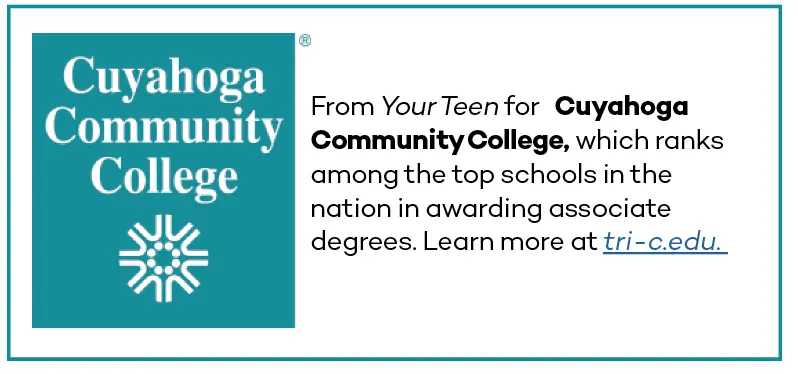If someone told me in high school that I would transfer to three different schools during my undergraduate career, I would have just given up. However, as a sophomore at Cuyahoga Community College (Tri-C) in Cleveland, Ohio, I am more than excited to transfer into my third university next year and receive a dual degree—a Bachelor of Science and a Master of Public Health.

Why Attending a Community College Was Right for Me
In my senior year of high school, I applied to eight four-year universities and was ecstatic to be accepted into my top-choice school. The only expectation I set for myself was to attend a four-year college straight out of high school.
| [adrotate group=”31″] |
However, the reality was that partial scholarships were not enough for my family’s financial needs, and I did not qualify for any federal loans. Nevertheless, I went to that private college and spent much of the first few months completely overwhelmed as I tried to figure out how we were going to pay for my education.
During my winter break, my family and I brainstormed how to pay for the fall semester balance after not being able to qualify for the Parent Plus Loan that I’d counted on. The financial obstacle was too great to overcome, and after completing one semester, I ultimately decided to attend community college.
Why Community College?
Fortunately, I was offered a full academic scholarship to attend Tri-C. As a result of not having to worry nonstop about how to pay for college, I began to make substantial academic and personal progress. Now, after completing my first semester at community college, I have realized the importance of attending a school that understands that life is not linear.
Having navigated both the four-year traditional and two-year transfer route, I have been able to see the advantages and disadvantages of both and can help dispel some of the myths about community college.
5 Truths About Community College
1. The curriculum is not easy.
I honestly expected my GPA to skyrocket after one semester at Tri-C. But it increased by one-tenth of one point. I was held to the same standards in my honors classes as I was at my previous institution. Simply put, my classes aren’t easy A’s, and I am more than prepared to tackle any university’s curriculum.
2. Attending community college is not a setback.
There seems to be a stigma surrounding open-enrollment institutions, based on the amount of puppy-eyed emojis on my Facebook post and the overcompensating smiles I received from my old high school acquaintances at my local grocery store. I earned a full-tuition scholarship to attend my community college, yet people feel sorry for me.
3. A vast network of support is available.

4. An associate degree is legit.
Once I receive my associate degree, I will have satisfied all general education requirements at community college price. My closest school friend will graduate with her associate degree in the IT technical field and is already employed. Employers value the associate degree, so why question its credibility?
5. The classrooms mirror the world.
I love having classmates of all different ages, nationalities, and racial backgrounds. At my previous university, I was typically the only Black person in my class. Being in class with people of all ages adds another layer to my college education. My education is enhanced because I am surrounded by people who are moving through life with a similar ambition yet with diverse backgrounds.

What’s Next
I currently am following multiple pathways that will allow for a seamless transfer into a four-year university. I may even be on track to receive my master’s degree debt-free. My community college experience helped me remain productive and focused while receiving a high-quality education.





